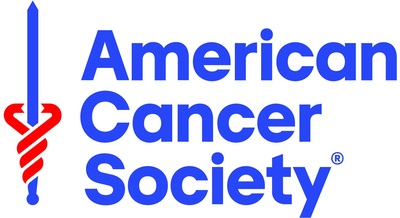Press Releases
ATLANTA, Oct. 1, 2018 /PRNewswire/ -- As National Breast Cancer Awareness Month begins, the American Cancer Society says remarkable progress against the disease should not obscure the significant challenges remaining.

The Facts:
Thanks to largely stable incidence rates, improved treatment, as well as earlier detection through screening and increased awareness, a woman's risk of dying of breast cancer dropped 39 percent between the late 1980s and 2015, translating into more than 300,000 breast cancer deaths avoided during that time.
Despite that progress, there's much more to be done. Breast cancer is still the second-leading cause of cancer death in women, second only to lung cancer. There is still a large racial gap in mortality, with African-American women having higher death rates compared to whites, even as incidence rates are similar.
The American Cancer Society's estimates for breast cancer in the United States for
2018 are:
- About 266,120 new cases of invasive breast cancer will be diagnosed in women.
- About 63,960 new cases of carcinoma in situ (CIS) will be diagnosed (CIS is non-invasive and is the earliest form of breast cancer).
- About 40,920 women will die from breast cancer.
- While black and white women get breast cancer at roughly the same rate, the mortality rate is 42% higher among black women than white women.
At this time, there are more than 3.1 million people with a history of breast cancer in the United States. (This includes women still being treated and those who have completed treatment.)
Risk factors:
- Numerous studies have confirmed that alcohol consumption increases the risk of breast cancer in women by about 7%-10% for each one drink of alcohol consumed per day on average. Women who have 2-3 alcoholic drinks per day have a 20 percent higher risk of breast cancer compared to non-drinkers.
- Obesity increases the risk of postmenopausal breast cancer. Risk is about 1.5 times higher in overweight women and about 2 times higher in obese women than in lean women.
- Growing evidence suggests that women who get regular physical activity have a 10%-25% lower risk of breast cancer compared to women who are inactive, with stronger evidence for postmenopausal than premenopausal women
- Limited but accumulating research indicates that smoking may slightly increase breast cancer risk, particularly long-term, heavy smoking and among women who start smoking before their first pregnancy.
If you or someone you love are concerned about developing breast cancer, has been recently diagnosed, are going through treatment, or are trying to stay well after treatment, the American Cancer Society provides important information on these topics and more.
What the American Cancer Society is Doing
The ACS currently funds 155 multi-year grants focused on breast cancer totaling $60.2 million. We have played a key role in many of the advances against breast cancer, including funding early work that eventually led to the development of tamoxifen and Herceptin.
Join us and help save lives from breast cancer: Fundraise and participate in one of more than 250 Making Strides events or participate virtually at makingstrideswalk.org.
The American Cancer Society's nonprofit, nonpartisan advocacy affiliate, the American Cancer Society Cancer Action Network (ACS CAN) is also working to make fighting breast cancer a national priority. ACS CAN is committed to ensuring that all women have the opportunity to receive lifesaving cancer screenings and services. Working in all 50 states and Washington, D.C., ACS CAN advocates for adequate funding for early detection programs that provide access to affordable breast cancer screenings and diagnostic services to low-income, uninsured and underinsured women.
To learn more about ACS CAN's advocacy work and to help make fighting breast cancer a priority in your community, visit acscan.org/makingstrides.
SOURCE American Cancer Society
